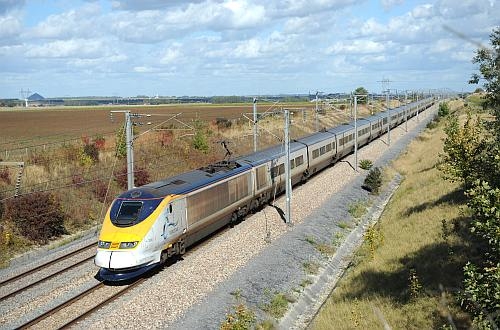PwC's projections for probable traffic growth are based on the assumption that new direct Eurostar services from London to Amsterdam, and Geneva, and German Rail (DB) services from London to Amsterdam, Cologne and Frankfurt, are launched by the end of 2016. The survey notes that a period of around four years should be needed to achieve the potential traffic increase and stabilise traffic levels.
Based on the historical relationship between GDP growth rates and high-speed ridership growth, PwC anticipates natural growth of 1.4% per year on the existing routes from London to Paris and Brussels between 2014 and 2016, rising to 2.4% per year between 2016 and 2020. This is the equivalent to 1.84 million additional passengers per year in 2020.
New routes are expected to carry 1.73 million passengers per year in 2020, with the Amsterdam route generating 450,000 additional journeys, Geneva 580,000, Cologne 340,000 and Frankfurt 360,000. Rail's market share is expected to increase from 21% to 37% on the London – Geneva route and from 36% to 44% on London – Amsterdam, which is currently one of Europe's busiest air routes. London - Frankfurt is expected to grow from 19% to 31%.
The introduction of direct services is expected to reduce the rail journey time on these four routes by at least 30 minutes.
The report acknowledges that technical and regulatory barriers could still prevent these figures being achieved by the end of the decade.

